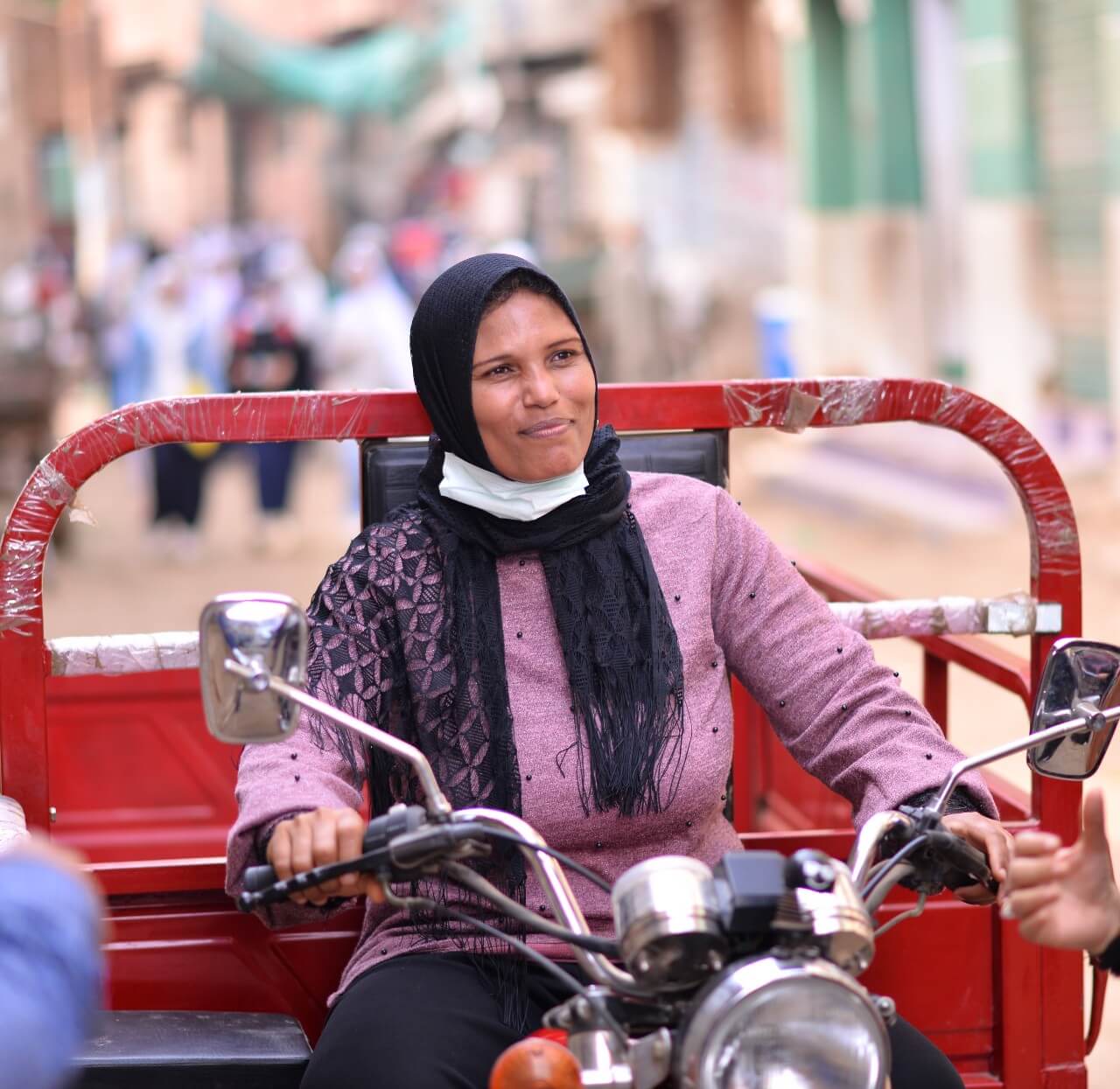
Diversifying suppliers to support women entrepreneurs

Increasing supplier diversity has proven to be a win-win approach, both for companies and underrepresented businesses in the supply chain, such as women-owned businesses (WOBs). It ensures greater participation from WOBs in the economy, increasing women’s income and improving their welfare.
In support of Haya Karima and the National Family Development Programme, UN Women partners with Procter & Gamble (P&G) on a global initiative to equip women entrepreneurs with the skills and support they need to access opportunities as potential suppliers and distributors. In Egypt, the work focuses on creating a pool of women-owned businesses integrated into the supply and distribution channels of P&G and other companies. Targeting villages in Beni Suef and Minya, women are jointly trained by UN Women and P&G experts on business development, marketing, sales techniques, financial management and soft skills. The work is resulting in supply chain diversification, whereby women-owned businesses are better equipped to establish a supplier base network for P&G and entrepreneurship development. More than 300 women villagers are now positioned to carry out market development activities reaching over 700,000 potential buyers in 341 villages with an increase in income that ranges between 30–50%.
Over two consecutive phases, the project has led to 1) Supply-Chain Diversification where 57 WOBs in diversified fields (e.g., transportation, facility management, electric supplies, pipes and tanks maintenance, re-cycling, branding, events management) are better equipped with information via awareness sessions which helped them establish a supplier base network for P&G. 10 of these WOBs are now registered as official vendors at P&G supplier database. 2) Entrepreneurship Development where 300 women villagers in Beni-Suef and Minya governorates are positioned to carry out market development activities outreaching to over 713,000 potential buyers in 341 villages with an average sales rate of 26 percent and an increase in income that ranges between 30-50 percent (around 1,760 EGP/woman was paid as sales’ incentives with a total amount of 528,040 EGP). 3) Having Women in Retail Industry where 11 WOBs (for 53 women) are currently functioning in the retail industry with a contractual agreement of mutual interest among them and a seed capital that amounts to 375,760 EGP divided equally on the start-up companies (around 34,160 EGP for each). A number of women benefiting from these investments revolved their companies’ capital by 1.5 times every 20 days; some women founded their own sales’ outlets; one purchases a motorcycle to sell the products herself “door-to-door”; and almost all of the women went online with their products to ensure wider marketing opportunities.
The global programme, implemented in Egypt,is funded through the generous support of Procter & Gamble and runs from November 2017–June 2022. This project is part of UN Women’s wider Women’s Economic Empowerment portfolio in Egypt supporting #ruralwomen’s digital financial inclusion, young women’s and returning women’s employability and entrepreneurship, evidence-based advocacy for investing in care services to advance women’s access to decent work, supporting private sector’s implementation of the Women’s Empowerment Principles, and advancing government and private sector use of gender lens investing tools and innovative financing vehicles to advance gender equality and women’s empowerment in the workplace and in the community. UN Women’s Economic Empowerment Portfolio is implemented in partnership with the Government of Egypt and national regulatory authorities, and in collaboration with private sector and civil society.
Beni Suef feature story: https://egypt.unwomen.org/en/news-and-events/stories/2019/11/growing-women-owned-businesses-in-egyptian-governorates